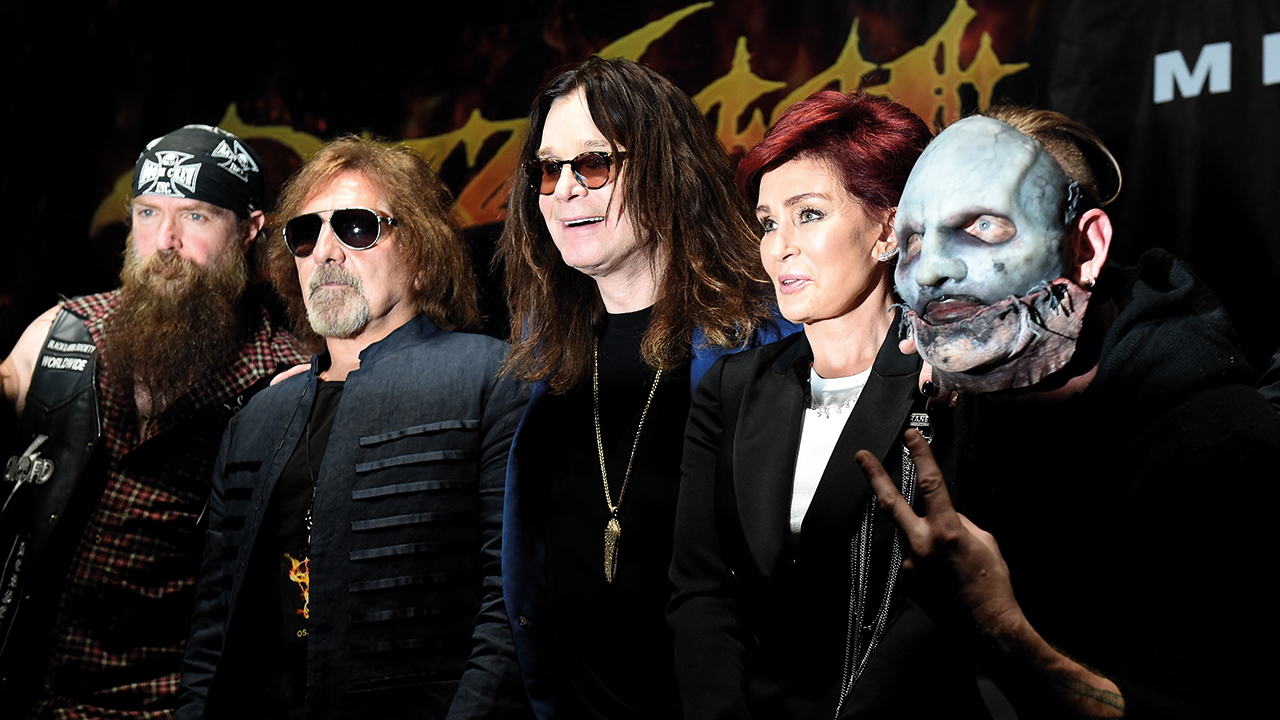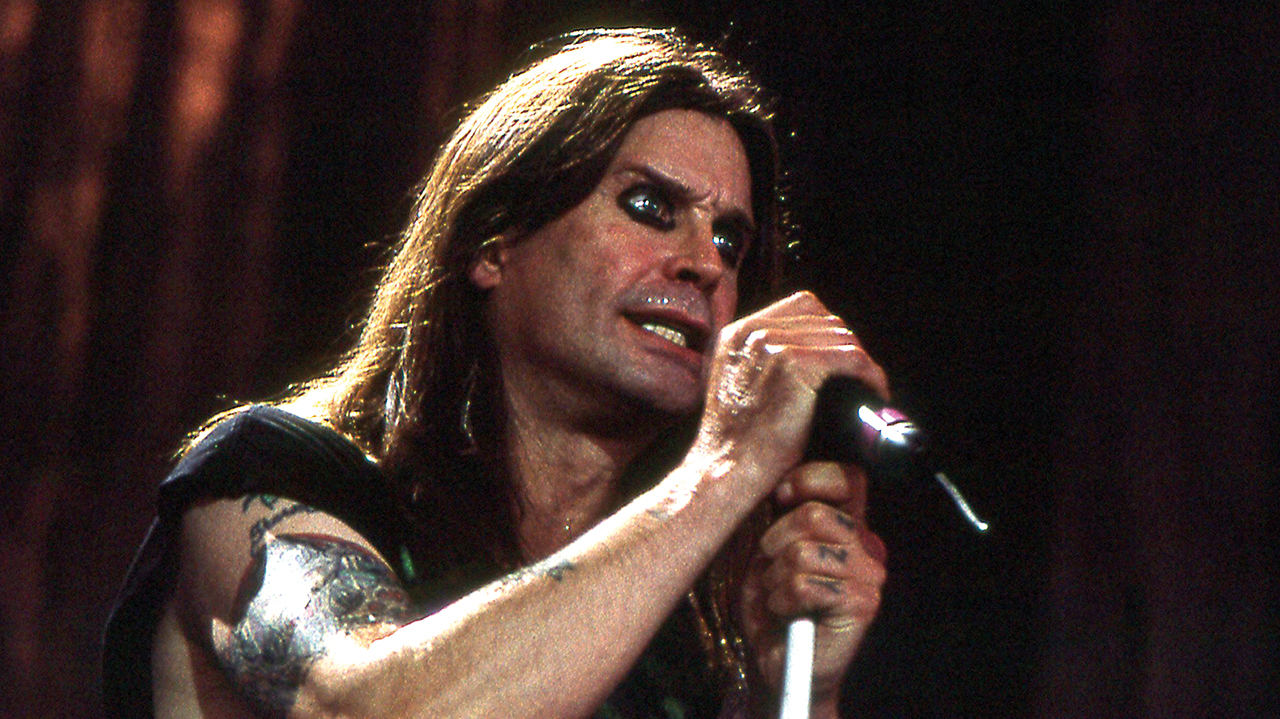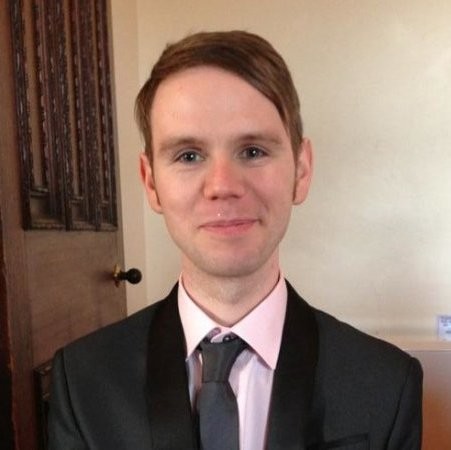Back in the mid-90s, the notion of a travelling, all-metal festival was batshit crazy. Monsters Of Rock was dead, Download was still a twinkle in Andy Copping’s eye, and Lollapalooza filled its lineup with dirge such as Ben Folds Five, Cornershop and Coolio. But when Lollapalooza refused to put Ozzy on the bill, a frustrated Sharon Osbourne was spurred on to create a mini touring festival of her own, and Ozzfest was born.
In the 20 years since, it’s grown beyond recognition, giving us iconic moment after iconic moment, such as Fred Durst emerging from a giant toilet in 1998, Slipknot kicking serious arse from the second stage in 1999, and Sharon turning the power off on Maiden in 2005. Digging deep into its evolution, we asked 10 of its veterans to talk us through their memories from the last 20 years of chaos.
1996: The first Ozzfest changes metal forever
It would soon become a globe-touring behemoth, but the first ever Ozzfest made just three stops: Phoenix, San Bernardino and Anchorage. It may have been a slow and steady approach, but there were no compromises with the lineup: Ozzy topped the bill, backed by Slayer, Danzig, Biohazard, Sepultura, Fear Factory and Narcotic Gypsy. The second stage, meanwhile, featured the likes of Neurosis and Coal Chamber. Not a bad way to usher in a festival sea change.
Twenty years on, Fear Factory’s Burton C Bell recalls that putting together a metal fest was a ballsy move by the Osbournes. “In the mid-90s, metal was waning, and alternative was the king,” he says. “Ozzfest put metal back at the forefront. We knew were part of something special. Metal bands in the 90s and today can thank Ozzy and Ozzfest for a lot, because they proved to the world that metal is not a fleeting genre, and is full of fiercely loyal fans. The bands all had a great time, too. There was a lot of drinking going on – perhaps too much, sometimes!”
Fear Factory’s second album, Demanufacture, had been out for a year, and the band were constantly on the road. “The album had been doing well in Europe, but the States is a hard nut to crack,” says Burton. We had to prove ourselves to an audience that wasn’t always listening, because a lot of them were just there for Ozzy. I learnt a lot from being able to watch him every night – I was a young kid taking mental pointers from the other bands on the bill.”
Ozzfest was a hit with fans and bands, but few would envisage what was to come over the next two decades, least of all Burton. “There was talk of them doing it again the next year, and we wanted to do it again, but we never thought it would last as long as it has.”
1997: Sabbath return & Manson mania is born
It was the Ozzy Osbourne-fronted Sabbath’s first tour since 1979. With Bill Ward sitting this one out, Faith No More sticksman Mike Bordin joined the Double O, Tony Iommi and Geezer Butler onstage. “Those guys hadn’t done a lot together for a long time,” Mike recalls. “That made it intense. It was emotional. You talk about Axl and Slash getting together, but Ozzy and Tony was a fuckin’ big deal. For me, it was like being between Mount Everest and Mount Fuji, and you’re a very small pebble in an enormous valley.”
It wasn’t just the returning Sabs that made Ozzfest ’97 stick in the memory – the Osbournes had secured a huge coup by signing Marilyn Manson up to join halfway through. Back then, adulation and chaos followed the God Of Fuck around in equal measure. His second show of the tour, at the Polaris Amphitheater, Columbus, went down in the annuls of metal infamy.
While protesters picketed outside, news that Ozzy was ill and unable to perform that night sent those inside into an explosive fury. Mike Bordin had chosen this particular night to share a few Black Tooth Grins with Dimebag, giving him an interesting perspective of the carnage that was unfolding around him.
“All hell broke loose with the riot,” he says. “What did I do? I went and started drinking more. I was shitfaced drunk. I couldn’t see straight; I had to close one eye. Somebody had gotten a golf cart and we were driving through the riot in this cart absolutely hammered. I had a hand over one eye, saying, ‘Oh look, they’re burning the box office and the fences…’”
1998: Ozzfest makes its UK debut
With Ozzfest a runaway hit Stateside, Ozzy and Sharon were keen to bring the travelling circus to their home turf. On June 20, 1998, the Milton Keynes Bowl played host to an all-star lineup featuring Sabbath, an Ozzy solo set, Foo Fighters, Pantera, Soulfly, Slayer, Coal Chamber and more.
“The festival had just exploded since ’96,” says Coal Chamber/Devildriver mainman and serial Ozzfest performer, Dez Fafara. “The Osbournes took the English thing to America, and then brought it back to the UK. It was a trip. It was as if the festival was going back to its roots, even though it had started in America. A lot of the bands from those early years are still around today, and we have Sharon and Ozzy to thank for that. We were humbled to be asked to play – there are a million bands that want to get onto Ozzfest every time it’s on.”
With Coal Chamber riding high on the back of Loco, Dez recognised the impact a killer Ozzfest performance could have. “Before we played, I had a conversation with some other members of the band who shall remain nameless, and I said to them, ‘Hey, stay semi-sober for this one. This show has to be tight’,” he says. “We had a really good show. We were surrounded by a bunch of killer bands that day, but I knew that even though it was simple music, when we were tight and flawless, no one could beat us.”
Sharon ended up managing Coal Chamber’s career, and the Ozzfest rolled ever onwards. “We wanted that festival to do well, because we felt if the Osbournes won, we all won, because there were doing so much for bands. Taking Ozzfest to the UK felt like a real win.”
2001: The underground rises up
In 2001, nu metal was at its peak, reflected in an Ozzfest lineup featuring Linkin Park, Disturbed, Papa Roach and more. But scratch a little deeper, and the festival was giving a platform to underground US metal and hardcore acts who were struggling to catch a break.
“Ozzfest 2001 to 2006 is a who’s who of all of the different metal subgenres,” says Hatebreed frontman Jamey Jasta. “Ozzy and Sharon have given so many people the opportunity to have a career and gain fans. These bands didn’t have other mediums to do that. If you want to be a successful band in a metal subgenre, you don’t have MTV, you won’t get front-page YouTube placement, you won’t get on the late-night TV shows, and you’re sure as hell not going to get on radio. So when you get an opportunity like Ozzfest, you have to roll with it.”
Jamey reckons that the Double O led by example by shining a spotlight on the underground. “For Ozzy to give his name and put so much time into a travelling festival, even at times when metal was almost a dirty word, it is incredible. Pre-Big 4 comeback, Metallica were taking out Kid Rock [in 2000], while Ozzy had Deftones and the edgier metal bands on Ozzfest. Ozzy led the charge. Ozzfest bridged the gap.”
By 2001, Ozzfest’s metal summer camp vibe was truly established, and while Jasta recalls wild times aplenty, some of the names have been conveniently forgotten with the passage of time. “There were so many wild moments on Ozzfest, but I shouldn’t talk about them. People are grown up and have kids now and are married. Let’s say there was drinking, fighting and fucking, as well as crashing golf carts, but we don’t know who it happened to or when it happened and in what year, ha ha ha!”
- 30 arrests at Ozzfest Meets Knotfest
- 10 most defining moments in Ozzfest history
- Out Of The Black - Ozzfest: From One Weekender To Global Phenomenon
- In Pictures: Ozzfest and Knotfest join forces in California
2002: Tragedy strikes on the road
Nu metal remained a major draw as Ozzfest toured Europe and the States in 2002, with the likes of POD, Kittie, Mushroomhead and Drowning Pool on board. But it was the shocking loss of the latter’s frontman, Dave Williams, midway through the US leg, that the tour is remembered for.
“We did the UK and European shows, and we got to play with Tool, Slayer and so many great bands,” recalls Drowning Pool guitarist CJ Pierce. “We had the US shows and everything was going great, and then tragedy struck.” Dave was founded dead in the band’s tourbus, due to an undiagnosed heart condition. He was just 30 years old. “We were planning to work on the next record after Ozzfest, so I went into the hotel room to do some writing,” recalls CJ. “I was working on some stuff and my phone kept ringing, but I kept shutting it off because I was working. It kept ringing, and I realised something wasn’t right. I walked out of my room and I saw some of the Ill Niño guys and the Meshuggah guys, and everyone was crying. Everyone was looking at me, and I thought, ‘Oh fuck, something’s not right.’ I saw my guitar tech, and that’s when I found out the news. There were police barricades and a helicopter flying above us. It was like I woke up in a nightmare.”
The final three weeks of Ozzfest wrapped up while the metal community mourned their loss. “I’m lucky to have known Dave,” CJ says. “He was one of those stars that burns brightest and burns out fastest. Now I treat every show like it’s the last show I’ll play, and the Ozzfest shows we have played since have been really special.”
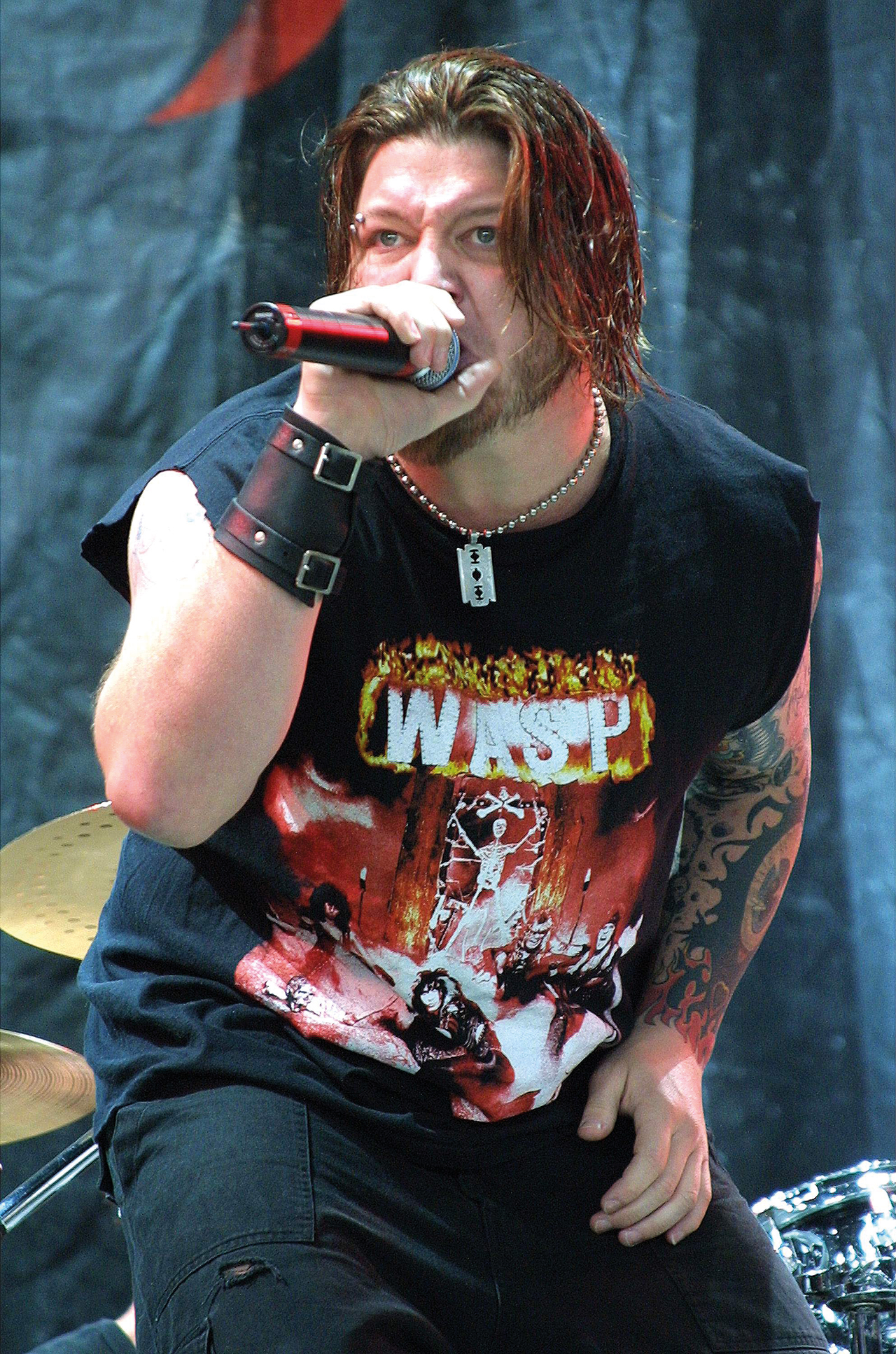
2004: Rob Halford steps in for Ozzy
As Ozzfest 2004 rolled into New Jersey, the mainman was struck down with bronchitis. Perhaps mindful that his cancellation in Columbus in 1997 had gone down badly, the pressure was on to find a solution. Dez Fafara was on the bill with Devildriver that day, and among those bracing themselves for the worst.
“We were backstage, leaving catering, and we had heard that Ozzy was really sick and he didn’t know if he could play. The talk was to get on the bus and get ready to split, because there could be riots,” he recalls. “We thought it could go really sour really fast.” But then a chrome-domed, leather-sporting metal superhero swooped in and saved the day: Rob Halford agreed to front Sabbath. In any circumstances this would be pretty mindblowing, but it was all the more incredible given that Halford had only recently reunited with Judas Priest and had blasted through a full set right before taking the stage with the Sabs. The shit was never going to hit the fan on Halford’s watch.
“Priest and Sabbath come from the same place, born and raised. We go all the way back to when both bands started, and so we have so much in common. Any chance we had we were in each other’s company, and as soon as we are, the rock’n’roll stories start flying!” he says. “We love and support each other, so whenever we can help out, we do. In this case it was just mates making sure the show went on.” Indeed, the show went on, and provided an ‘I was there’ moment for the tens of thousands of lucky swines who caught it live.
2008: Metallica join the Ozzfest famileh
In 2008, Ozzfest scaled back the mayhem, opting for just one show in Frisco, Texas, rather than a full tour. But what a show it was. Having headed up back-to-back Ozzfests, Ozzy’s solo band took a step back and settled for second billing. But surely it’d take a gigantic act to oust the festival’s founder from his headliner spot? Enter Metallica. It was a return to the festival for bassist Rob Trujillo, who had previously played as a member of Ozzy’s band.
“I remember Sharon talking about doing this festival, creating an environment that really focused on metal bands, and really turning it into a rock’n’roll circus – and I mean that in a positive way,” Rob says of his Ozzfest origins. “It was an exciting time, because we had nothing to lose, so for me to be a part of that in the initial launch was really cool.” Jumping forward to 2008, Rob reckons that sharing the bill with Metallica only served to push Ozzy to put on the show of his life. “I know for Ozzy, he’s fired up, man, he wants to deliver the goods – he wants to show Metallica what he can deliver,” he smiles. “I know how he feels. And he did; he had a great show, and it was definitely a special moment for me to be reconnected with that tribe, to the Ozzfest universe. Because I was on the Metallica team, and only doing the one show, it was like, ‘Wow!’ I was excited, but I wish we could have done more. Maybe in the future, we’ll be able to.”
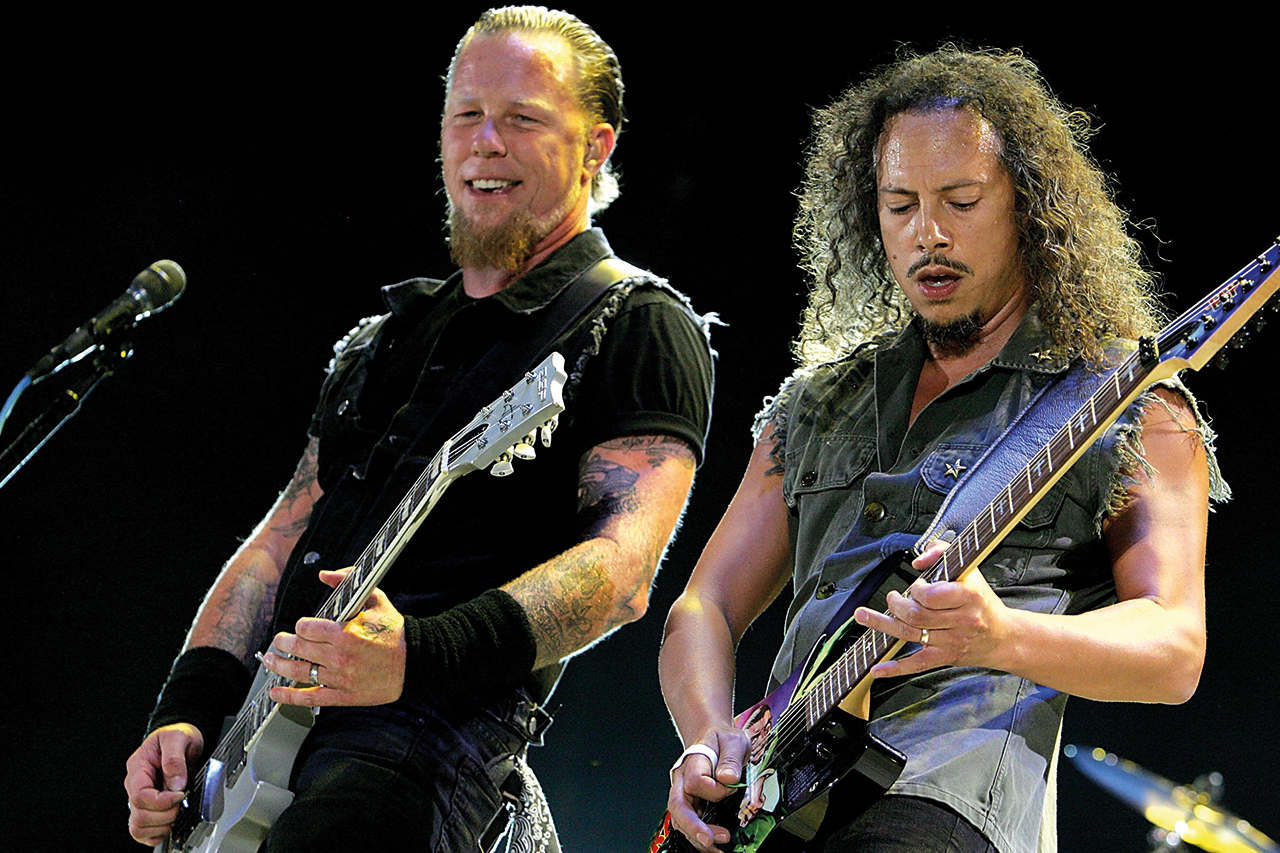
2010: Ozzfest hits Israel…
If launching a metal festival in mid-90s North America seemed a bold move, taking said festival to Israel was fucking insane. Again, Ozzfest bucked the trend, holding a one-day show in Tel Aviv in 2010. First and foremost, there were security concerns given the relatively recent history of conflict throughout the region. Then, on a business level, who knew if this untapped market really gave two shits about a metal show? As it turned out, Ozzfest Israel was one in a long line of highlights for the fest.
“I had no idea what to expect,” says guitarist James ‘Munky’ Shaffer, whose band, Korn, sub-headlined for Ozzy. “That show was crazy. The crowd was huge and went nuts. I had no idea that it would be as great as it was. Just being in that part of the world, there’s a different energy over there. There are all of these religious beliefs at every angle. It felt like the spiritual centre of the Earth, and you could feel that clearly. I had a great time; it was a great experience. The Ozzfest guys did a great job.”
It’d be rude to go all that way and not take in the sights, right? Or at least top up your tan. “Everyone felt safe and secure, and we were able to explore a little bit,” says Munky. “Jonathan and Fieldy took a trip to Jerusalem. I chilled on the beach in Tel Aviv. That show was like a vacation. It was great that so many people in that part of the world could come together and enjoy music. They could sit back and forget about their differences for a day and enjoy some good rock music. Music can do that; music can be a real healer.”
2013: …and then Japan
Becoming ever more ambitious, Ozzfest pushed into Japan, with a two-day bill topped by Slipknot and Sabbath in Chiba City, 25 miles outside Tokyo. In an unlikely culture clash, Steel Panther were sandwiched between acts from the Far East, so they decided to play one of the most controversial songs they could think of.
“Our drummer, Stix Zadinia, said, ‘Alright, let’s play Asian Hooker!’” says frontman Michael Starr. “I said, ‘You want me to sing Asian Hooker?! C’mon, man! Alright!’ I went out to sing it, and people knew it, and they enjoyed it.”
The crowd reaction was different from what Panther were used to, though. Instead of laughter or gasps of shock, they were met with an overwhelming quiet. “In between the songs in Japan, they are absolutely silent, because that is their culture. We were thinking we were blowing it – we didn’t know what was happening!” says Stix. “But that’s how they are. They clap really fucking loud, and then they go silent and wait. Because we talk a lot between songs, that silence went on for a while. But it was a fantastic experience.”
The Japanese crowd may have reacted well, but Michael isn’t convinced that their unique humour was well suited to the festival. “I think most of the comedy, the fun part of everything we do, kind of went over their heads a little bit,” he says. “Because they’re so PC there, it was hard for people to go, ‘Oh, OK, am I supposed to enjoy this or not?’ But I think it went fine. It went so good, we’ve hardly been back since!”
2016: Ozzfest collides with Knotfest
For its 20th anniversary, Ozzfest joined forces with the new kid on the block: Knotfest. The result was a one-off, two-day super-show featuring the likes of Slayer, Megadeth and Disturbed, as well as Sabbath and Slipknot.
“It was mindblowing that we were asked to be part of Ozzfest,” says Jill Janus, whose band, Huntress, played on the first day. “It’s so big that you get instant gratification from your performance. Of course, that’s not a good thing if you blow it… we knew we had to bring it, hard.”
“Bringing it” was made difficult due to the baking conditions of San Bernardino, California, in early September. “Our set was at 12:30pm, and we performed in nearly 100˚ Fahrenheit [38˚ Celsius]. It was brutal.”
But Ozzfest once again proved itself as the ultimate exposure opportunity for rising bands. Twenty years in, it remains a major draw. “We weren’t expecting a large crowd, however, it was massive. We did a meet-and-greet with a line that was an hour long,” she says. “Any band I know of would definitely suck a dick to get on that bill. Unfortunately, it’s not that easy, ha ha ha!”
Ozzfest’s history may be littered with booze, stolen golf carts and even riots, but it’s not always wall-to-wall carnage for all involved. “I saw Sabbath play in 2013, and that was life-changing,” Jill says. “This time, I opted for vacuuming the tourbus and laying in my bunk listening to the massive firework show that was going on. I fell asleep after hearing Ozzy introducing that, and I dreamt of demons and rivers. It was perfect. Ozzfest meets Knotfest was a perfect marriage, and I’m hoping it comes back. If anyone can do it, Ozzfest can.”
